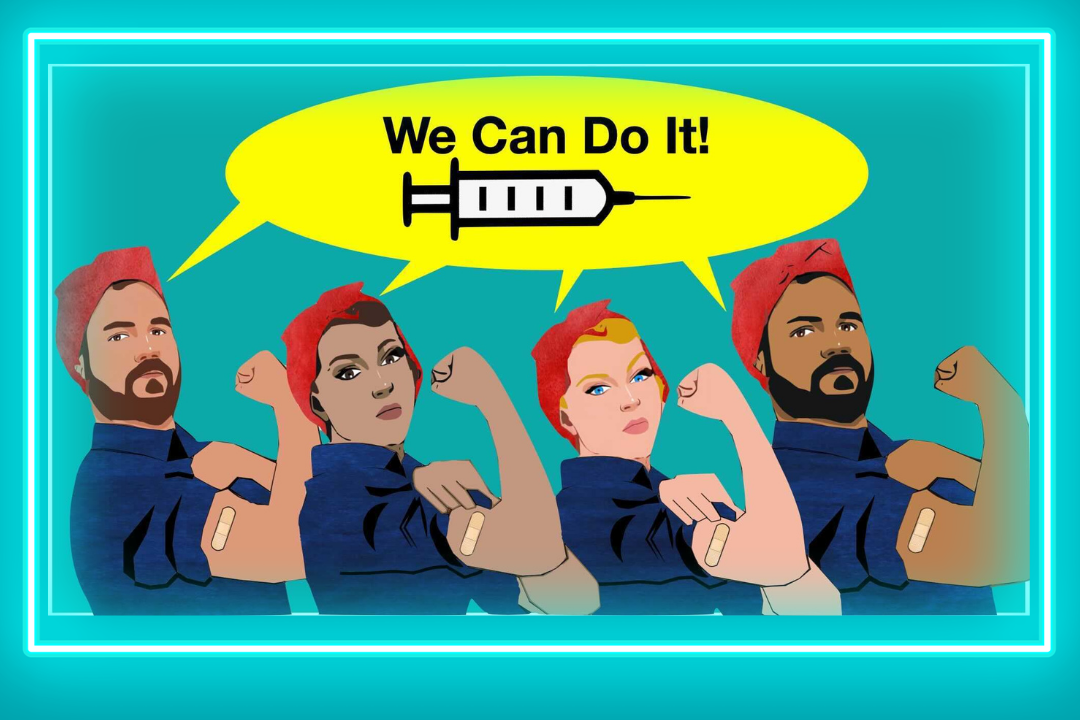GW Students Mobilize to Counter COVID-19 Misinformation on Social Media
George Washington University students are pushing back on misinformation about COVID-19 through a new volunteer group that aims to spread evidence-based public health updates using social media channels.
The GW Health Communication Volunteer Corps (HCVC) launched in January, and since then more than 100 students from the Milken Institute School of Public Health have been participating in the effort to fact check and promote information about vaccine availability, vaccine safety and mask wearing on Facebook and Instagram.
Lorien Abroms, professor in the Milken Institute SPH’s Department of Prevention and Community Health, serves as the volunteer corps’ academic sponsor. She is also affiliated with GW’s Institute for Data, Democracy & Politics, which aims to help the public, journalists and policymakers understand digital media’s influence on public dialogue and opinion and develop solutions to disinformation. The IDDP provides funding for the volunteer corps.
The pandemic highlighted the need to develop a systematic and organized effort to combat health misinformation, Dr. Abroms said. IDDP experts have done extensive research on how dangerous misinformation about vaccines and COVID-19 spreads online. Sometimes misinformation comes from individuals trying to sell a product or services, other times it spreads to fuel political divides, she said.
“There are a lot of incentives for the existence of misinformation, and there's a lot of misinformation on social media,” Abroms said. “Public health groups don't have the same kind of machine for putting good information out there.”
Jessie Armstrong, a public health communications and marketing graduate student and HCVC program manager, said early in the pandemic she noticed a lot of misinformation circulating on social media from well-intentioned family and friends who didn’t have a firm understanding of how the virus spreads or how to reduce transmission. That highlighted how challenging it can be for many to find accessible, evidence-based information.
“I wanted to be able to proactively put that information out there on the internet and counter some of the misinformation,” she said.
Every week the volunteer corps’ executive committee and active members search for new fact-checked, evidence-based content to amplify on their personal social media accounts and on the HCVC’s accounts. Volunteers are trained on how to develop good captions to develop the most engaging content possible.
As a public health communications and marketing graduate student, Meredith Hernlund said she’s designed mock public health campaigns as part of her coursework. Crafting real-world messaging has been a rewarding process of trial and error, she said.
“This has been a really great learning experience,” said Hernlund, an HCVC program manager. “I think it'll definitely be very useful for me when I'm applying for jobs and going out there and in the real world.”
Nathan Lu, a program manager and master of public health online student, said throughout the pandemic it has been difficult to see misinformation spread on social media. The HCVC has also provided a new opportunity for online students like Mr. Lu, who is based in Canada, to collaborate with other public health students.
“It's really cool being able to put that classroom knowledge into practice and be able to have a tangible effect,” he said.
The group has so far been primarily focused on COVID-19, but as vaccination rates increase and cases continue to drop, they are introducing more information about different relevant topics like mosquitos, sleep hygiene and gender identity. HCVC is continuing to recruit GW students from all schools and disciplines as volunteers. Interested students can find more information by following the HCVC Instagram and Facebook pages or by emailing HCVC@gmail.com
Students affiliated with the HCVC’s spinoff Spanish-language initiative Brigada Digital de Salud have also started doing outreach and developing social media training for health care workers who live and work in communities that have the lowest vaccination rates and higher COVID-19 case numbers. They recently started working with health care workers at Mary’s Center in Washington, D.C., which primarily serves Latino and immigrant populations. They also plan to do social media outreach to Facebook pages and group that service these areas.
As the HCVC becomes more established, the team plans to monitor how users resonate with different types of social media posts—whether they are drawn in by funny captions or certain types of graphics—and the ideal frequency of posts.
Social media users need regular exposure to evidence-based public health information to break through the “clutter of noise and media” that people are exposed to online, Abroms said.
“If they hear about vaccination once and then they hear nothing, it's going to be really different than if they hear about it from their mother and then their uncle and then from their friend in health care and so on,” she said. “The more little drips of information, I think the better and the more powerful.”
Abroms hopes the HCVC can become a model for a scalable, national program to mobilize public health students to counter misinformation and spread evidence-based facts.
This article was published by GW Today.

